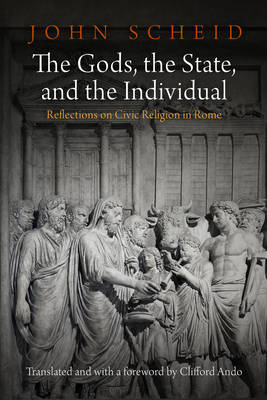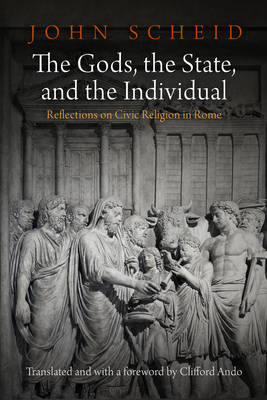
Bedankt voor het vertrouwen het afgelopen jaar! Om jou te bedanken bieden we GRATIS verzending (in België) aan op alles gedurende de hele maand januari.
- Afhalen na 1 uur in een winkel met voorraad
- In januari gratis thuislevering in België
- Ruim aanbod met 7 miljoen producten
Bedankt voor het vertrouwen het afgelopen jaar! Om jou te bedanken bieden we GRATIS verzending (in België) aan op alles gedurende de hele maand januari.
- Afhalen na 1 uur in een winkel met voorraad
- In januari gratis thuislevering in België
- Ruim aanbod met 7 miljoen producten
Zoeken
€ 93,95
+ 187 punten
Omschrijving
Roman religion has long presented a number of challenges to historians approaching the subject from a perspective framed by the three Abrahamic religions. The Romans had no sacred text that espoused its creed or offered a portrait of its foundational myth. They described relations with the divine using technical terms widely employed to describe relations with other humans. Indeed, there was not even a word in classical Latin that corresponds to the English word religion.
In The Gods, the State, and the Individual, John Scheid confronts these and other challenges directly. If Roman religious practice has long been dismissed as a cynical or naïve system of borrowed structures unmarked by any true piety, Scheid contends that this is the result of a misplaced expectation that the basis of religion lies in an individual's personal and revelatory relationship with his or her god. He argues that when viewed in the light of secular history as opposed to Christian theology, Roman religion emerges as a legitimate phenomenon in which rituals, both public and private, enforced a sense of communal, civic, and state identity. Since the 1970s, Scheid has been one of the most influential figures reshaping scholarly understanding of ancient Roman religion. The Gods, the State, and the Individual presents a translation of Scheid's work that chronicles the development of his field-changing scholarship.Specificaties
Betrokkenen
- Auteur(s):
- Vertaler(s):
- Uitgeverij:
Inhoud
- Aantal bladzijden:
- 200
- Taal:
- Engels
- Reeks:
Eigenschappen
- Productcode (EAN):
- 9780812247664
- Verschijningsdatum:
- 11/12/2015
- Uitvoering:
- Hardcover
- Formaat:
- Genaaid
- Afmetingen:
- 155 mm x 231 mm
- Gewicht:
- 430 g

Alleen bij Standaard Boekhandel
+ 187 punten op je klantenkaart van Standaard Boekhandel
Beoordelingen
We publiceren alleen reviews die voldoen aan de voorwaarden voor reviews. Bekijk onze voorwaarden voor reviews.









